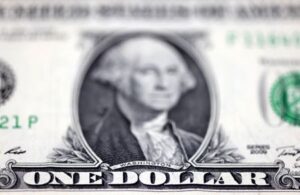Wall Street headed lower on Thursday, on track to snap a winning streak of all-time closing highs as mixed economic data and concerns over a potential shift in U.S. Federal Reserve policy prompted a broad but shallow sell-off a day ahead of the Jackson Hole Symposium.
The negative disposition is being attributed to several factors, including hawkish-sounding Fed commentary, confirmed reports of two explosions in Afghanistan that resulted in multiple casualties, and some buyers preferring to wait for Fed Chair Powell’s Jackson Hole speech tomorrow.
Ten of the 11 S&P 500 sectors were trading in negative territory, although no sector is down at least 1.0%. The consumer staples sector (-0.6%) is underperforming with a 0.6% decline, while the real estate sector (+0.1%) bucks the negative trend with a 0.1% gain.
These percent changes reflect a lack of trading conviction, as the macro headlines provide convenient excuses for the market to cool down from its record-setting run.
In earnings news, Salesforce.com (CRM), Snowflake (SNOW), and Williams-Sonoma (WSM) were some notable earnings winners, with CRM providing offsetting support for the Dow. Autodesk (ADSK) and Dollar Tree (DLTR) were down sharply following their reports.
On the Fedspeak, Kansas City Fed President George (FOMC voter in 2022), St. Louis Fed President Bullard (FOMC voter in 2022), and Dallas Fed President (FOMC voter in 2023) each told CNBC that they prefer the Fed starts tapering asset purchases sooner rather than later. Ms. George and Mr. Kaplan both issued similar comments earlier this month.
The Treasury market, meanwhile, is seeing continued rebound momentum in yields amid revised GDP data and weekly claims data that was largely in-line with expectations. The 10-yr yield was up two basis points to 1.36% after starting the week at 1.26%. The U.S. Dollar Index was up 0.2% to 93.03.
The second estimate for Q2 GDP checked in at 6.6% (consensus 6.6%) versus the advance estimate of 6.5% and the GDP Deflator edged up to 6.1% (consensus 6.0%) from the advance estimate of 6.0%.





